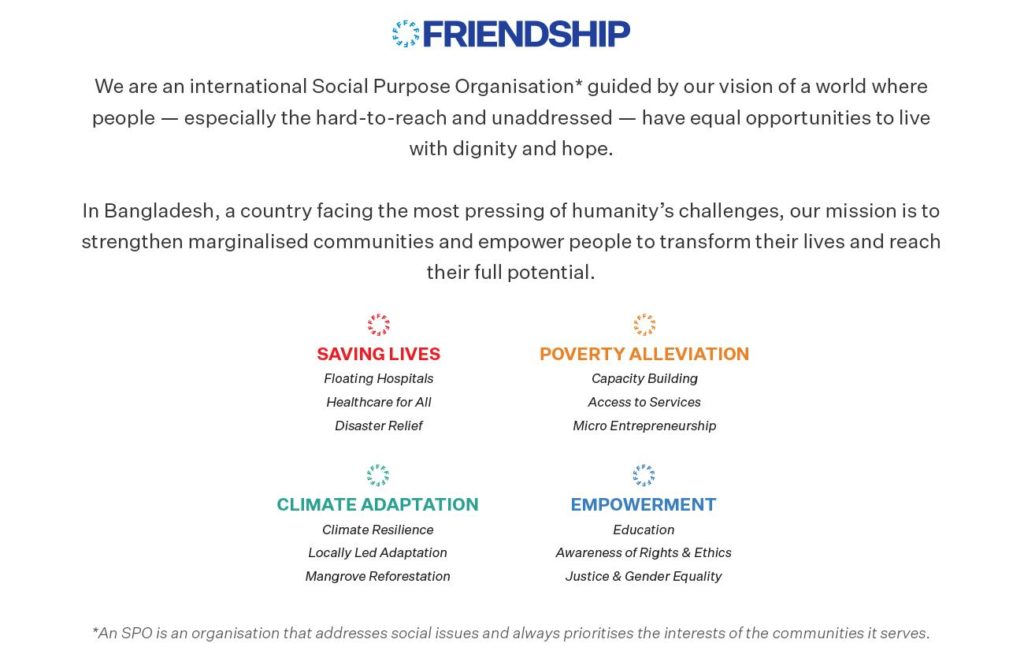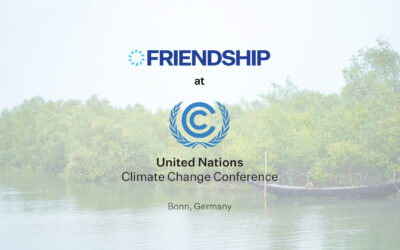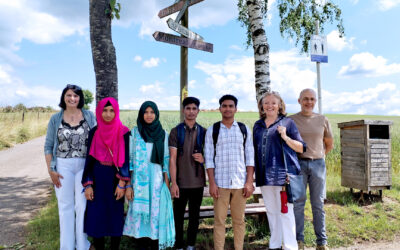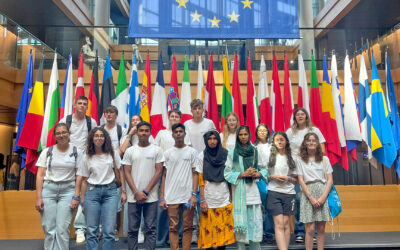It was in March 2019, exactly a year before the Covid-19 lockdown in Bangladesh and all around the world, whilst travelling with us in the climate impacted and remote communities on the river islands of Northern Bangladesh, that global brand advisor Shubhankar Ray was “struck with the dedication and commitment of those who were working with Friendship”: the staff, the community and its international volunteers. He said “these are the real heroes of our world” and, whilst sitting on the deck of the hospital ship as the sun set on the Brahmaputra, he came up with his idea of a Friendship “Friends and Heroes” campaign which would celebrate these unrecognised heroes working at the epicenter of a global climate crisis embedded in a context of constantly increasing inequalities.
Heroes were all around and within Friendship. The local medical teams dedicating their lives working year in year out on hospital ships far away from their home and family; the foreign doctors and nurses providing life changing surgical operations on those same floating hospitals; the Friendship paralegals combatting child marriage, discrimination and exclusion from public services; or the disaster management volunteers preparing even the most vulnerable members of the communities for the ever-intensifying impacts of climate change; down to the girls and boys from the Friendship schools who, whilst studying under particularly harsh conditions, achieve results far above the national average; and many more…
If these everyday heroes met with world acknowledged heroes, they would recognise each other as friends, and the world could decide who are the Friends and who are the Heroes…
March 2019. The campaign trials started long before the Covid-19 pandemic, long before the world apparently ‘discovered’ that the heroes of these times are the frontline workers who, day after day, perform tasks that pass unnoticed, and whose dedication ensures the very survival of their communities.
All that was already true in March 2019 and has just become more visible today.
The Covid-19 pandemic has brought an unprecedented level of threat and urgency to the work of Friendship’s frontline staff and volunteers. Those whom we trained to make communities more resilient to climate disasters are today helping these communities to combat the threat of a health disaster.
In times of upheaval, our greatest resource is always people, mostly women, from within the communities. For at the end of the day, Friendship is all about people helping people.
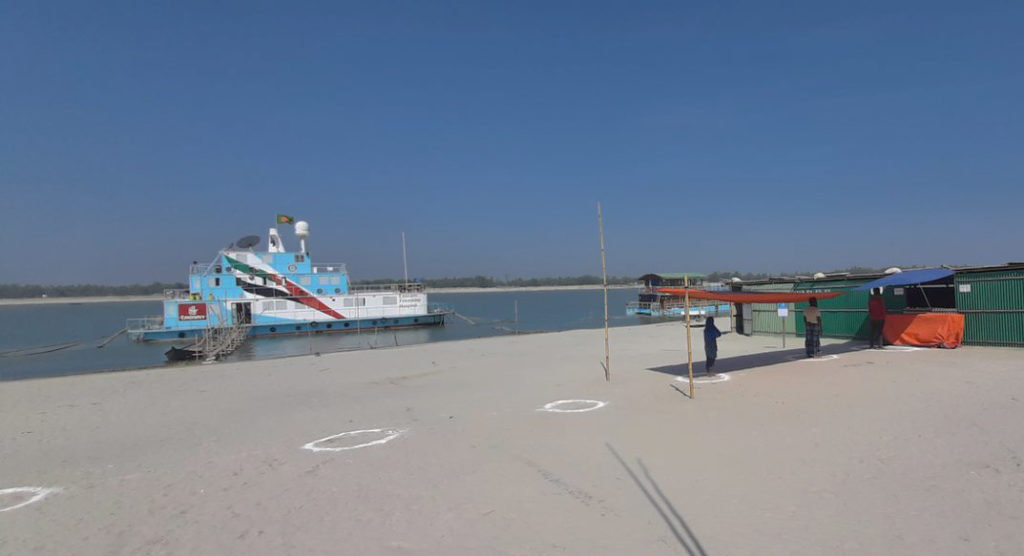
But Covid-19, devastating as it may be, is a crisis that humanity can hope to recover from. Deep changes will be needed to our way of life as we know it. ‘Normal life’ will not return. Normal will forever be ‘the new normal’. This must be so, otherwise when this pandemic eventually recedes, our way of life which has resulted in the climate crisis we are facing today, will continue to devastate communities across Bangladesh and across the world. This was showcased once again most recently by Cyclone Amphan, which devasted thousands and thousands of homes and acres of crop land in the coastal belt of Bangladesh and parts of India. Despite global complacency for those living in climate-impacted communities, this threat is immediate, life-threatening, and permanent.
While our work as a Social Purpose Organisation (SPO)—a designation we find more suitable than “Non-Governmental Organisation” (NGO)—is in these difficult times inextricably linked with facing and managing disasters, we are always looking beyond the present. Friendship’s main themes of Saving Lives, Poverty Alleviation, Climate Adaptation and Empowerment are each indispensable elements for moving towards our vision of a world where people have equal opportunities to live with dignity and hope. With over one billion people in the world living in desperate climate and socio-economic conditions, Friendship’s integrated approach to development, as applied successfully over many years in some of the most vulnerable communities of the planet, should have a major potential in being shared with others.
When in November 2019, Shakib Al Hasan, world-famous N° 1 cricket allrounder and a hero to all in Bangladesh and many around the world, joined the Friendship team in the chars (remote river islands of North Bengal), he spent time in making friends with many of the Friendship heroes in the field.
The launch date for our ‘Friends and Heroes’ Campaign was set for April 2020—a deadline that came and went during the fight for survival against the pandemic. All our campaign pictures and plans were suddenly outdated, for today a picture showing solidarity but including proximity has become invalid in our social-distancing, mask-wearing world.
Yet we need to see our friends and heroes side by side together, for they show the relationship between Friendship and heroism. Each individual who sees these friends and heroes, can choose for himself who are the friends and who are the heroes.
Shakib’s commitment to Friendship and its heroes has not diminished, as illustrated by the action conducted in common to provide food and essential support to some of those who are most badly impacted by the economic crisis resulting from the Covid-19 crisis. And it is during times such as these, in this tumultuous world, that friends and heroes are needed more than ever, for in this world of isolation they can be a driving force of life and can create the way forward for better understanding, commitment and solidarity.
Runa Khan
Founder and Co-Chair Friendship International
Executive Director Friendship Bangladesh
Marc Elvinger
Co-Chair Friendship International
